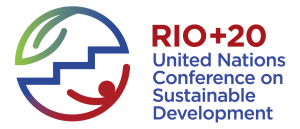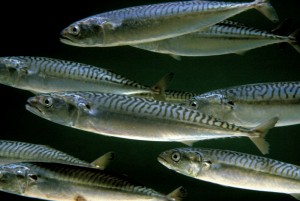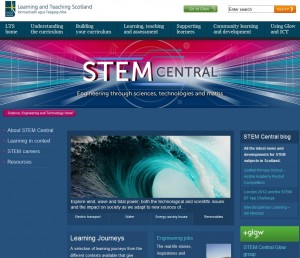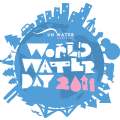

Global Citizenship blog
11am - 12pm, Tuesday 19 June 2012
 What are your green dreams for the future?
What are your green dreams for the future?
What message will you send to world leaders?
How can Scotland become more sustainable?
What can we expect from this globally important event?
Over 150 heads of state and world leaders will gather in Rio de Janeiro from 20-22nd June 2012 for crucial talks at the United Nations Conference on Sustainable Development. Stewart Stevenson MSP, Minister for the Environment and Climate Change, will be one of those travelling to Rio as part of the official UK delegation.
Education Scotland, through Glow, is giving you the chance to link with the Minister live from Rio to learn more about the event and the hopes and expectations of the UK delegation.
The conference, referred to as Rio+20, will mark 20 years since the historic Earth Summit in the same city in 1992 which put issues such as climate change and the protection of biodiversity on the map and gave birth to Agenda 21 – an action plan for a sustainable future which was adopted by national governments, cities and local authorities across the world. Rio+20 will focus on seven priority areas including: decent jobs, energy, sustainable cities, food security and sustainable agriculture, water, oceans and disaster readiness.
Rio+20 provides an opportunity to move away from business-as-usual and to take bold steps to end poverty and address environmental destruction.
This will be an interactive Glow meet so get your questions, messages, ideas and green dreams ready for Rio!
This Glow meet will be suitable for learners in primary and secondary schools.
Visit http://bit.ly/glowrio20 to register and join the Glow meet on the day. Free Rio+20 resources are available at: http://bit.ly/JxZr5G
MoreMarine Scotland Science GLOW Meet
 Everything you ever wanted to know about the marine environment but were too scared to ask….
Everything you ever wanted to know about the marine environment but were too scared to ask….
11am - 12pm, Thursday 23 February 2012
Why are fish slimy? What is the weirdest sea creature? Which sea dad gives birth through its mouth? What yukky substance from the sea is used in lipstick?
Around one fifth of Scotland’s population live within a kilometre of the sea and our marine environment is one of the most diverse in the world – supporting over 48,000 species. Despite its importance in terms of our economy and biodiversity, we still know very little about marine life and the oceans remain one of the Earth’s last unexplored frontiers.
Join this interactive Glow meet for a whacky, fun and informative look at the science of our oceans and seas. This Glow meet will be aimed at learners in primary schools. The school submitting the best questions during the Glow meet will win a visit by the Edinburgh Science Festival Marine Detectives Workshop, complete with rock pool and live creatures.
Further resources about the marine environment are available on Glow at: http://bit.ly/marineresources
Click here to watch recording of this Glow meet>>
More For the first time, everything you want to know about Scotland’s environment will now be available at the touch of a button on a new website provided by Scotland’s key environment and health agencies.
For the first time, everything you want to know about Scotland’s environment will now be available at the touch of a button on a new website provided by Scotland’s key environment and health agencies.
Scotland’s Environment Web – named SEweb – aims to be the gateway to everything you want to know about Scotland’s environment. This three year project, supported by funding from the European Union, will put Scotland at the global forefront of sharing environmental information, prioritising problems and involving citizens in assessing and improving their own environment.
Features of SEweb will include:
Visit the website at: http://www.environment.scotland.gov.uk/default.aspx
More Education Scotland’s new-look Schools Global Footprint Calculator is now live and can be viewed at: http://www.educationscotland.gov.uk/schoolsglobalfootprint
Education Scotland’s new-look Schools Global Footprint Calculator is now live and can be viewed at: http://www.educationscotland.gov.uk/schoolsglobalfootprint
This key online resource has had a significant make-over and now features:
The school estate is responsible for an estimated 50% of greenhouse gas emissions from local authorities. The online calculator allows learners to measure the ecological footprint of their school in relation to six topic areas: food, water, energy, buildings, transport and waste. Learners are also encouraged to develop innovative approaches to reducing their impact on the environment and promoting sustainable lifestyles in the wider community – from tackling the school run to growing and eating their own produce to reduce food miles.
In addition to providing an exciting real life context for delivering the experiences and outcomes, the resource greatly supports Eco-Schools activities and provides learners with skills for learning, life and work as Scotland move towards a low-carbon future.
View the Schools Global Footprint resource or find out more about Education Scotland’s sustainable development education resources.
More This significant new online resource from Learning and Teaching Scotland is packed with ideas, resources and links to help you create learning experiences that bring STEM (Sciences, Technologies, Engineering and Maths) subjects to life for learners. Using the focus of engineering, the STEM Central website offers stimulating and challenging interdisciplinary experiences based around contexts related to sustainability such as electric transport and renewable energy.
This significant new online resource from Learning and Teaching Scotland is packed with ideas, resources and links to help you create learning experiences that bring STEM (Sciences, Technologies, Engineering and Maths) subjects to life for learners. Using the focus of engineering, the STEM Central website offers stimulating and challenging interdisciplinary experiences based around contexts related to sustainability such as electric transport and renewable energy.
All the teaching ideas are linked to specific Curriculum for Excellence experiences and outcomes at third and fourth levels, and the learning journeys are supported with videos, activities and links to additional resources and information. To help inspire your learners, there are also links to careers resources and the real-life testimonies from contemporary Scottish engineers.
It enables you to explore the key learning and teaching approaches that can support STEM learning and meets the aims of the ‘Science & Engineering 21 - An Action Plan for Education’ by highlighting the big issues around science today.
Visit the STEM Central website at http://www.ltscotland.org.uk/stemcentral/
More The theme of ‘Water’ is often used by teachers to get students thinking about global inequalities. The Oxfam Water Week initiative, 13th-19th June in Scotland, encourages students to explore this key aspect of the world they live in and take action to make a positive change. A Teacher pack is available to staff who register on the website, and provides news stories, resources and ideas to facilitate activities in school.
The theme of ‘Water’ is often used by teachers to get students thinking about global inequalities. The Oxfam Water Week initiative, 13th-19th June in Scotland, encourages students to explore this key aspect of the world they live in and take action to make a positive change. A Teacher pack is available to staff who register on the website, and provides news stories, resources and ideas to facilitate activities in school.
Another charity, Wateraid, focuses on the provision of clean safe water supplies for some of the poorest people on the planet. Their website also has resources for teachers and learners, include documentary video clips.
In March the annual World Water Day 2011, promoted by the United Nations, helped to raise awareness of issues about water supply, climate change and natural disasters. National and local campaigns were complemented by educational activity in some schools.
Water supply has a significant impact on achievement of the Millennium Development Goals, in particular on child health, universal education, poverty and hunger.
More
Find us on